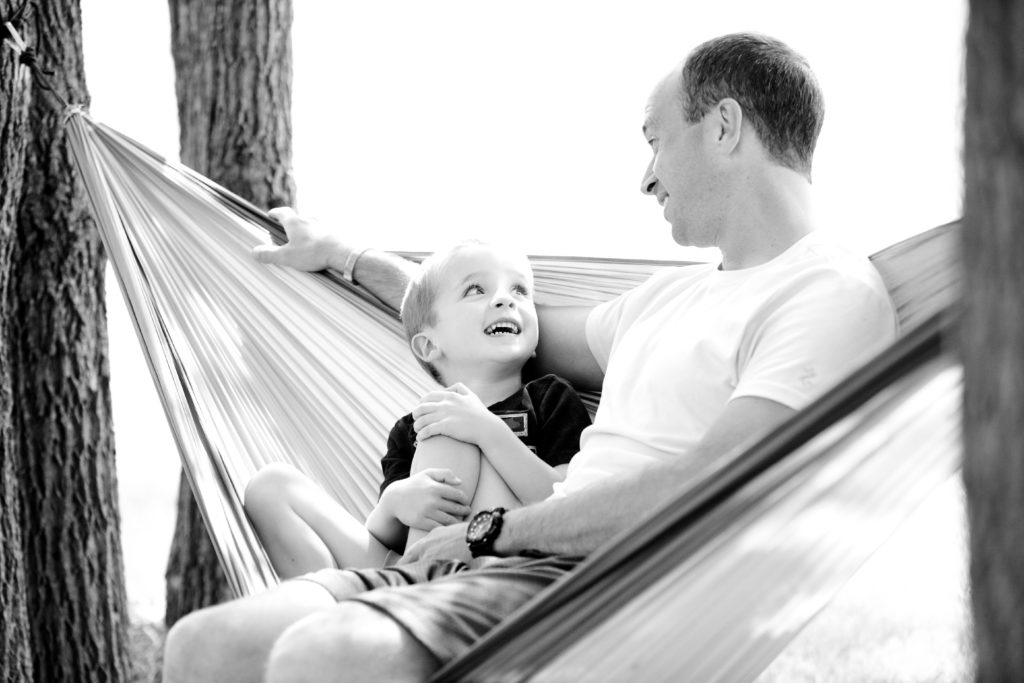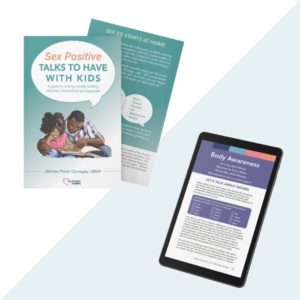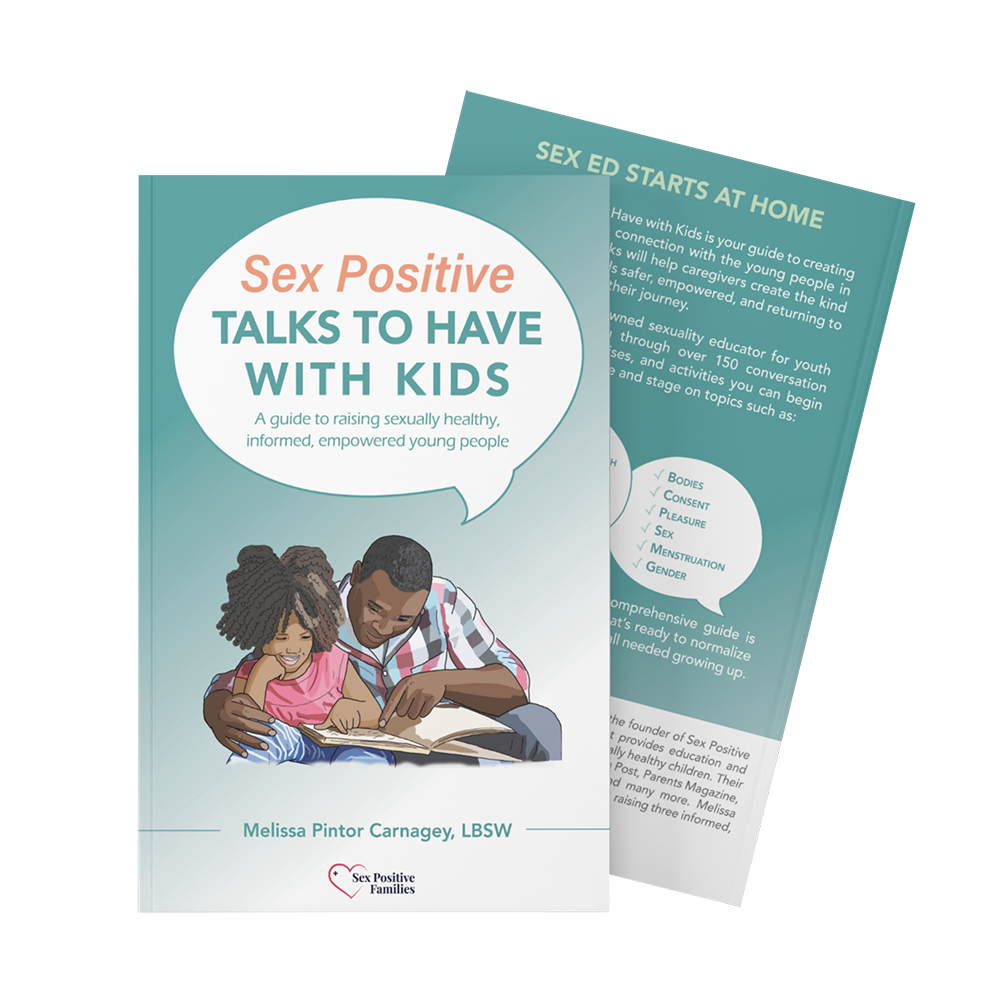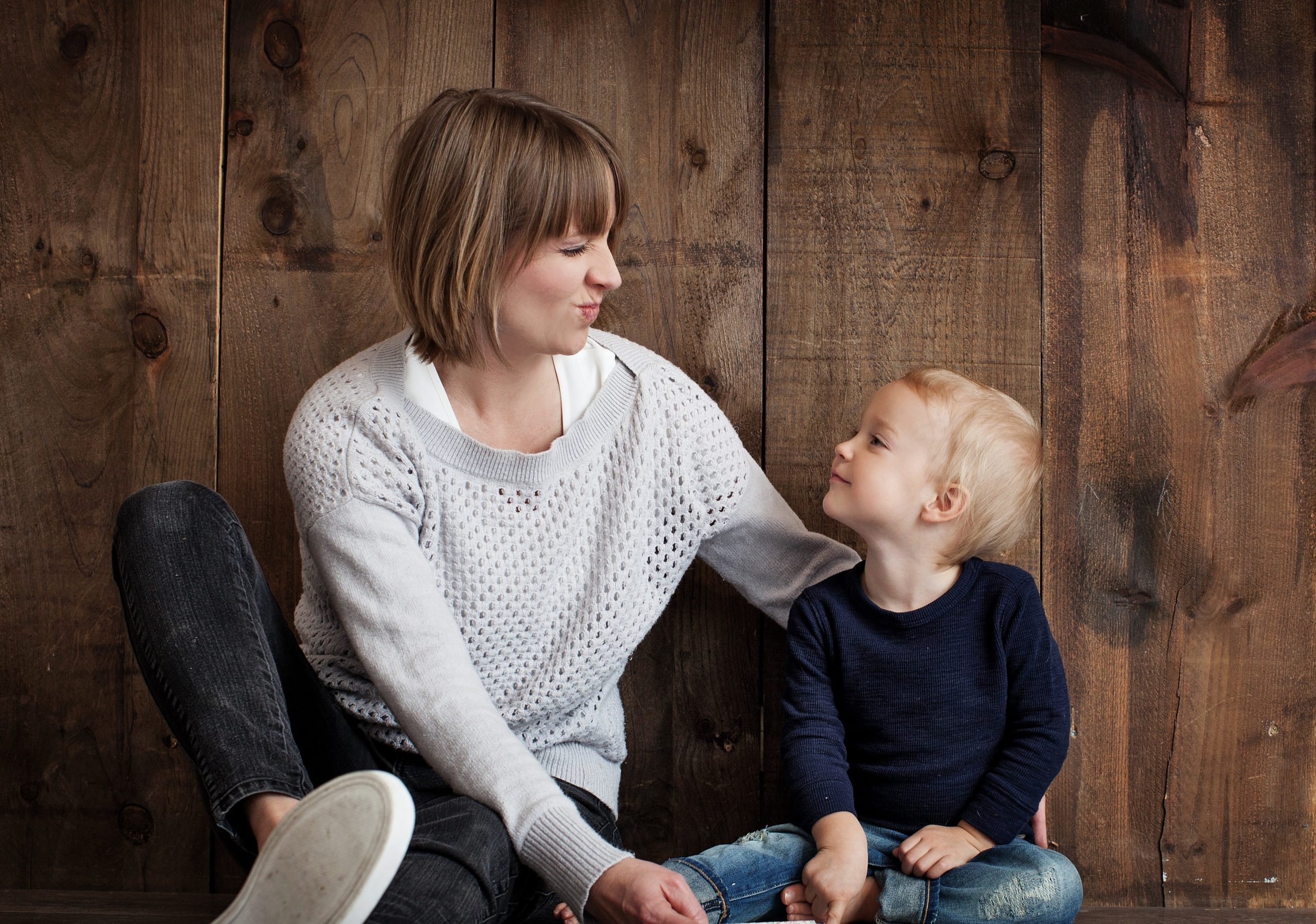-By: Melissa Pintor Carnagey, LBSW-
As a sex educator for families, I’m frequently asked about the best way parents and caring adults can respond to children when it comes to answering sex-related questions without feeling stuck, tripped up or uncomfortable. If this is you, know that you’re not alone and these feelings do not mean you’re a “bad” parent or caregiver. Addressing sexual health of children is tricky for many adults today for several reasons:
- Not growing up with open talks about sexual health- it’s harder to replicate what you haven’t seen or experienced before
- A lack of quality comprehensive sex education- it just was not offered (and still isn’t) in many schools; we can’t teach what we don’t know
- Growing up within purity culture or under religious belief systems that shamed sexuality, especially for girl and women-identifying people, or promoted toxic masculinity for boy and men-identifying people
- Having an identity that is systemically oppressed, hypersexualized, objectified or de-sexualized by society- particularly Black, Brown, Indigenous, LGBTQ+, fat and disabled bodies
- The influx of social media and streaming porn- influences we did not encounter as kids
- Experiencing sexual trauma, consent violations or policing of the body, at any point along your sexual health journey
All of these factors are real, can feel paralyzing and they take time to work through. It’s important to know that none of these are your fault. When I entered parenting over 20 years ago, I did so as a Black and Latinx 17-year-old who grew up within a Catholic-influenced culture. We did not talk about sex or sexual health at home, and I certainly wasn’t getting informed in my Texas schools. I’d experienced my share of trauma and consent violations, knew the impact it had on my own sexual health and wanted to do better for my children. I’ve had to employ lots of self-compassion along the way to undo generational traumas and the habits that were not serving me in building the kind of relationship with my kids that keep them safer, more informed and empowered. Showing up for my children’s curiosities along the journey has been a key element to successful sex positive parenting.

How parents and caring adults respond to sex-related questions is not a one-size fits all approach. (And if you’re wondering how you can respond to curiosities when it’s not “your” child, check out this post). Here are five steps you can take that will open dialogue with your child and help you navigate their questions at any age.
Step 1: Don’t panic!
“Why does my penis do this?”
Hearing questions like these from young children can cause a sense of panic or an urge to avoid the question. Even though sex and bodies are all a natural part of being human, our society has kept them highly stigmatized leading to silence and discomfort. Children are taught the nuance of numbers and equations throughout their development without shame and taboo, yet it’s sexual health education that provides tools and knowledge they’ll use far more often. We want to get to a place where talking about bodies, identity, consent, relationships and sex is as normalized as talking about math. How we react to a child’s curiosities can influence whether they continue to come to us. Remember, any questions they bring your way are a sign that they see you as a safe space and trusted resource. For this, you deserve a high-five.
Step 2: Respond in an affirming way

A great go-to response is: “That is such a great question! I’m so glad you asked.” Using affirming statements reassures a child that their curiosities are always welcomed, no matter the topic they bring to you. This is critical, especially when we are working to build the kind of trusting connection that makes them more likely to speak up if anything unsafe or concerning happens.
When we respond to a child’s question with silence, changing the subject or we flat out shut them down, it sends them the message that these topics are not welcomed. It’s the beginning of shame.
When it comes to sexual health, (even in the face of the most seemingly ‘awkward’ or ‘sexualized’ curiosities) you want to ensure they know that no topic is taboo.
Step 3: Get curious (not investigative)
So you’ve established with them that you appreciate their question, and that they trusted you with it, now send a curiosity right back their way. Something like, “What have you heard about {topic/term}?” or “What do you think {topic/term} means?” Not only does this give you at least a few more seconds to gather your thoughts, their response can offer more context that helps frame the information you offer next. Who knows, maybe they meant something totally different than you assume. For example, “Where did I come from?” might not be a question about reproduction or sex but simply them wondering what city they were born in. Asking them may also lead to you learning that their question was influenced by a concerning situation or experience that needs your follow-up. You’ll want to avoid any accusatory or investigative questions that can cause a child to feel like t必利勁 hey’re being punished, attacked or shamed. Steering away from questions that begin with “Why…” is one way to minimize this.
Step 4: Fight the urge to run

You’re not on fire! If it feels like you are, that’s completely normal. Take a breath. You’ve got this! Remember that this is a teachable moment and avoiding it can send them the message that asking these kinds of questions is not okay, which can shut them down in the long run. You both have an opportunity for growth and connection through the experience, and don’t hesitate to acknowledge any discomfort, if needed, so it isn’t interpreted incorrectly by your child.
Step 5: Answer the question
You’ve stuck with your child in this moment. Now you want to answer the question, keeping some considerations in mind such as their age, unique personality, and the setting you’re in at the moment. The information you give a 6-year-old inquiring mind will be different than the information you would give a teenager. Keep in mind that some kids love detail and deep dives, while others lose interest quickly. As such your response can be anything from simple, to scientific, to anecdotal. You can choose your own adventure in the way you wish to connect and support your child’s curiosity. Any information you’re unsure of, you can look up together or let them know you will get back to them. Then make sure you actually do. SexEtc and Scarleteen are excellent resources for medically accurate, sex positive Q&As that can help you be a responsive adult. Your child’s question could also be solved by watching a fun short video or reading a sex-positive book together. We offer a reading list chock full of sexual health books and resources for you to browse, organized by age. Remember that our children are not wanting us to be encyclopedias. They want us to be present, available and supportive when they need us.
The fact that you’ve made a commitment to stick with your child’s curiosity, without silencing them, is worthy. Take pride in breaking the cycles of shame and generational trauma.
Your responses are the starting point of other talks ahead as they grow and begin to explore their sexual health. It’s important to keep in mind that there is no one perfect answer or script when talking to your child. It’s the taboo-free connection that you foster that is most valuable.
To check out more tools to support the talks, visit our resource page filled with weblinks, videos, podcasts and more to help you be the confident sex educator in your child’s world.
 For a guide made just for parents and caregivers to tackle sexual health talks at every age and stage, check out our bestselling book Sex Positive Talks to Have With Kids: A guide to raising sexually healthy, informed, empowered young people.
For a guide made just for parents and caregivers to tackle sexual health talks at every age and stage, check out our bestselling book Sex Positive Talks to Have With Kids: A guide to raising sexually healthy, informed, empowered young people.

Sex Positive Talks to Have With Kids is the bestselling guide to creating an open, shame-free connection with the young people in your world.
It’s an inclusive, medically accurate, and comprehensive resource that walks you through over 150 conversation starters, reflection exercises, and activities you can begin implementing at every age and stage to normalize sexual health talks and become the trusted adult we all needed growing up.
